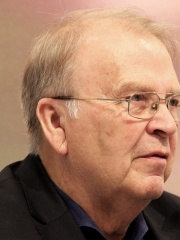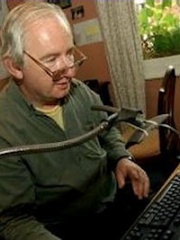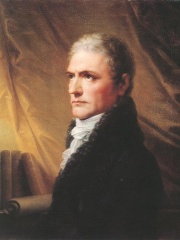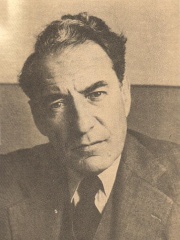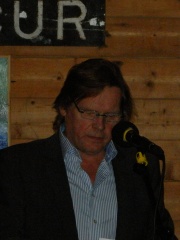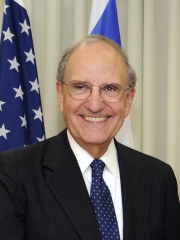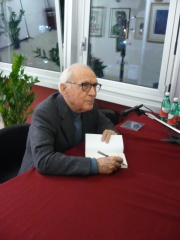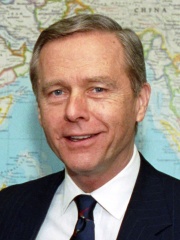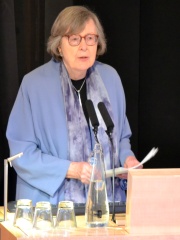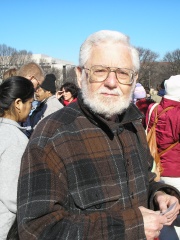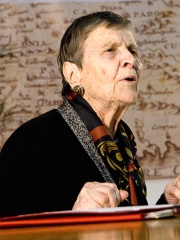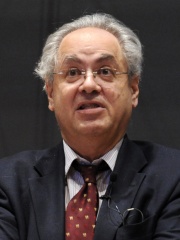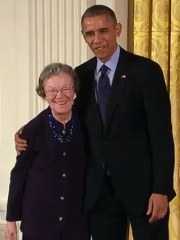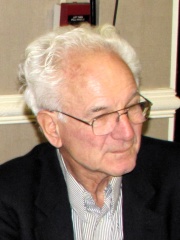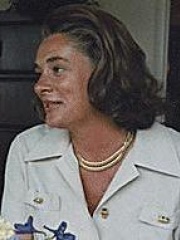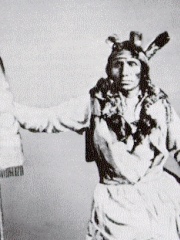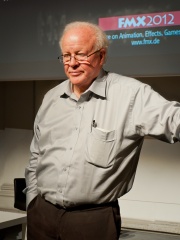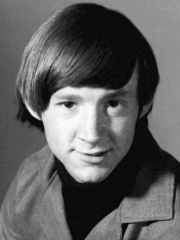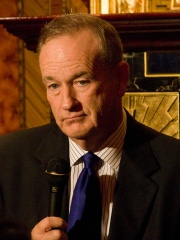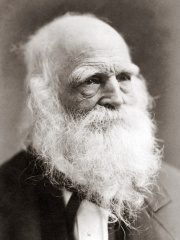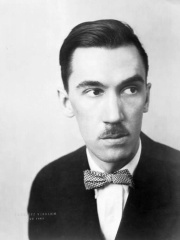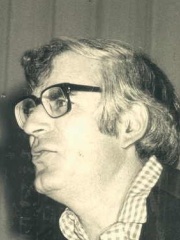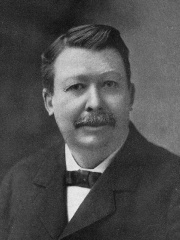Writer
Michael Parenti
1933 - 2026
EN.WIKIPEDIA PAGE VIEWS (PV)

 Michael Parenti
Michael Parenti
His biography is available in 20 different languages on Wikipedia (up from 18 in 2024). Michael Parenti is the 5,746th most popular writer (up from 5,975th in 2024), the 9,470th most popular biography from United States (up from 9,639th in 2019) and the 691st most popular American Writer.
Memorability Metrics
Page views of Michael Parenti by language
Among Writers
Among writers, Michael Parenti ranks 5,746 out of 7,302. Before him are Hanya Yanagihara, Wilhelm Genazino, Humphrey Carpenter, Timur Vermes, Dominique Bona, and János Batsányi. After him are Júlia Lopes de Almeida, Raffaele La Capria, Leena Krohn, Martín Luis Guzmán, Rói Patursson, and José Rodrigues dos Santos.
Most Popular Writers in Wikipedia
Go to all RankingsHanya Yanagihara
1974 - Present
HPI: 53.59
Rank: 5,740
Wilhelm Genazino
1943 - 2018
HPI: 53.58
Rank: 5,741
Humphrey Carpenter
1946 - 2005
HPI: 53.58
Rank: 5,742
Timur Vermes
1967 - Present
HPI: 53.57
Rank: 5,743
Dominique Bona
1953 - Present
HPI: 53.57
Rank: 5,744
János Batsányi
1763 - 1845
HPI: 53.57
Rank: 5,745
Michael Parenti
1933 - 2026
HPI: 53.56
Rank: 5,746
Júlia Lopes de Almeida
1862 - 1934
HPI: 53.56
Rank: 5,747
Raffaele La Capria
1922 - 2022
HPI: 53.56
Rank: 5,748
Leena Krohn
1947 - Present
HPI: 53.55
Rank: 5,749
Martín Luis Guzmán
1887 - 1976
HPI: 53.55
Rank: 5,750
Rói Patursson
1947 - Present
HPI: 53.55
Rank: 5,751
José Rodrigues dos Santos
1964 - Present
HPI: 53.54
Rank: 5,752
Contemporaries
Among people born in 1933, Michael Parenti ranks 442. Before him are Tim Conway, George J. Mitchell, Masae Kasai, Vincenzo Consolo, Horst Faas, and Jean Boiteux. After him are Pete Wilson, Penelope Lively, Tony Jay, William Blum, Nadezhda Khnykina-Dvalishvili, and Annie Easley. Among people deceased in 2026, Michael Parenti ranks 53. Before him are Helene Ahrweiler, Franco Menichelli, David Abulafia, Glenn Hall, Roger Allers, and Edith M. Flanigen. After him are Martin Chivers, Nora Ikstena, Peter Duesberg, Eddie McCreadie, James Van Der Beek, and Brad Arnold.
Others Born in 1933
Go to all RankingsTim Conway
ACTOR
1933 - 2019
HPI: 53.69
Rank: 436
George J. Mitchell
POLITICIAN
1933 - Present
HPI: 53.68
Rank: 437
Masae Kasai
VOLLEYBALL PLAYER
1933 - 2013
HPI: 53.65
Rank: 438
Vincenzo Consolo
WRITER
1933 - 2012
HPI: 53.64
Rank: 439
Horst Faas
WRITER
1933 - 2012
HPI: 53.64
Rank: 440
Jean Boiteux
ATHLETE
1933 - 2010
HPI: 53.62
Rank: 441
Michael Parenti
WRITER
1933 - 2026
HPI: 53.56
Rank: 442
Pete Wilson
POLITICIAN
1933 - Present
HPI: 53.55
Rank: 443
Penelope Lively
WRITER
1933 - Present
HPI: 53.53
Rank: 444
Tony Jay
ACTOR
1933 - 2006
HPI: 53.52
Rank: 445
William Blum
WRITER
1933 - 2018
HPI: 53.51
Rank: 446
Nadezhda Khnykina-Dvalishvili
ATHLETE
1933 - Present
HPI: 53.50
Rank: 447
Annie Easley
COMPUTER SCIENTIST
1933 - 2011
HPI: 53.43
Rank: 448
Others Deceased in 2026
Go to all RankingsHelene Ahrweiler
HISTORIAN
1926 - 2026
HPI: 55.15
Rank: 47
Franco Menichelli
GYMNAST
1941 - 2026
HPI: 54.81
Rank: 48
David Abulafia
HISTORIAN
1949 - 2026
HPI: 54.62
Rank: 49
Glenn Hall
HOCKEY PLAYER
1931 - 2026
HPI: 53.70
Rank: 50
Roger Allers
FILM DIRECTOR
1949 - 2026
HPI: 53.64
Rank: 51
Edith M. Flanigen
CHEMIST
1929 - 2026
HPI: 53.61
Rank: 52
Michael Parenti
WRITER
1933 - 2026
HPI: 53.56
Rank: 53
Martin Chivers
SOCCER PLAYER
1945 - 2026
HPI: 53.49
Rank: 54
Nora Ikstena
WRITER
1969 - 2026
HPI: 52.29
Rank: 55
Peter Duesberg
BIOLOGIST
1936 - 2026
HPI: 50.91
Rank: 56
Eddie McCreadie
SOCCER PLAYER
1940 - 2026
HPI: 50.52
Rank: 57
James Van Der Beek
ACTOR
1977 - 2026
HPI: 50.16
Rank: 58
Brad Arnold
SINGER
1978 - 2026
HPI: 49.78
Rank: 59
In United States
Among people born in United States, Michael Parenti ranks 9,472 out of NaN. Before him are Mary Carlisle (1914), Happy Rockefeller (1926), Rex Brown (1964), Little Crow (1810), Douglas Trumbull (1942), and Ricky Jay (1946). After him are Jenni Rivera (1969), Russell Westbrook (1988), Martin Eberhard (1960), Richard Dysart (1929), Peter Tork (1942), and Will Yun Lee (1971).
Others born in United States
Go to all RankingsMary Carlisle
ACTOR
1914 - 2018
HPI: 53.57
Rank: 9,466
Happy Rockefeller
COMPANION
1926 - 2015
HPI: 53.57
Rank: 9,467
Rex Brown
MUSICIAN
1964 - Present
HPI: 53.57
Rank: 9,468
Little Crow
POLITICIAN
1810 - 1863
HPI: 53.57
Rank: 9,469
Douglas Trumbull
FILM DIRECTOR
1942 - 2022
HPI: 53.57
Rank: 9,470
Ricky Jay
MAGICIAN
1946 - 2018
HPI: 53.56
Rank: 9,471
Michael Parenti
WRITER
1933 - 2026
HPI: 53.56
Rank: 9,472
Jenni Rivera
SINGER
1969 - 2012
HPI: 53.56
Rank: 9,473
Russell Westbrook
BASKETBALL PLAYER
1988 - Present
HPI: 53.56
Rank: 9,474
Martin Eberhard
ENGINEER
1960 - Present
HPI: 53.56
Rank: 9,475
Richard Dysart
ACTOR
1929 - 2015
HPI: 53.56
Rank: 9,476
Peter Tork
MUSICIAN
1942 - 2019
HPI: 53.56
Rank: 9,477
Will Yun Lee
ACTOR
1971 - Present
HPI: 53.56
Rank: 9,478
Among Writers In United States
Among writers born in United States, Michael Parenti ranks 691. Before him are Lloyd C. Douglas (1877), Alexei Panshin (1940), Bill O'Reilly (1949), William Cullen Bryant (1794), Norah Vincent (1968), and Hanya Yanagihara (1974). After him are Robert E. Sherwood (1896), Michael Shermer (1954), David Halberstam (1934), Joel Chandler Harris (1848), Jacob Abbott (1803), and William Blum (1933).
Lloyd C. Douglas
1877 - 1951
HPI: 53.68
Rank: 685
Alexei Panshin
1940 - 2022
HPI: 53.68
Rank: 686
Bill O'Reilly
1949 - Present
HPI: 53.63
Rank: 687
William Cullen Bryant
1794 - 1878
HPI: 53.61
Rank: 688
Norah Vincent
1968 - 2022
HPI: 53.60
Rank: 689
Hanya Yanagihara
1974 - Present
HPI: 53.59
Rank: 690
Michael Parenti
1933 - 2026
HPI: 53.56
Rank: 691
Robert E. Sherwood
1896 - 1955
HPI: 53.54
Rank: 692
Michael Shermer
1954 - Present
HPI: 53.54
Rank: 693
David Halberstam
1934 - 2007
HPI: 53.53
Rank: 694
Joel Chandler Harris
1848 - 1908
HPI: 53.53
Rank: 695
Jacob Abbott
1803 - 1879
HPI: 53.52
Rank: 696
William Blum
1933 - 2018
HPI: 53.51
Rank: 697

